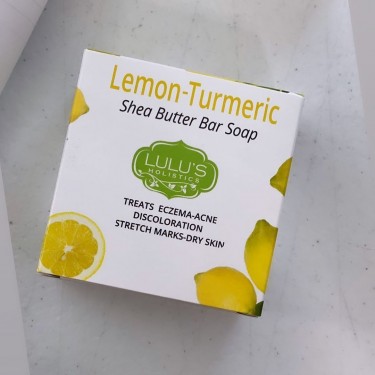

Pew Research Center found that 64% of Americans in 2020 believe environmental protection should be a top priority for Congress and the president. Clean products grow in popularity as the environment and climate change become more pressing issues. Consumers are looking beyond just the buzzwords of "natural" or "organic" and to specific information on labels, checking for other ingredients and whether a product is safe and sustainable.
Lulu holistics free#
Lulu's Holistics sells skincare free of chemicals, preservatives, and parabens, terms circulated a lot as customers search for products good for them and the Earth. We bond with our customers by showing them real people with real results and how Lulu's products are made." "Lulu's is unique in its ability to stay true to our ingredients and results," says Santiago, who makes the products. Highlighting plant-derived ingredients such as turmeric, shea, and essential oils, co-founder Deannee Santiago says the use of all-natural products is a big factor in the company's success. Lulu's Holistics sells handmade products to treat a range of issues, including acne, ingrown hairs, stretch marks, and discoloration all over the body. With three brick-and-mortar stores in Florida and New York and a successful online site and popular Instagram presence, the small business claims to have tripled its revenue from the previous year to $5 million in 2020. The natural skincare brand has seen sustained benefits from the rising demand for such products in recent years. While overall sales dropped due to pandemic-related shutdowns and supply-chain issues, bringing the market value to $10.53 billion, Grand View Research anticipates a growth rate of 5 per cent from 2020-2027.įor Lulu's Holistics, COVID-19 did not adversely impact sales it experienced growth as demand increased.
Lulu holistics skin#
As for natural skin care products, in 2019 the global market was worth $10.84 billion. The industry's value in 2015 was over $175 billion, climbing to over $225 billion in 2019. The natural and organic industry in the US has steadily increased in sales since 2015, according to a 2020 study by Whipstitch Capital and New Hope Network. Despite the goods' higher price tags, shoppers preferred products that positioned wellness at the forefront.

In Mexico, for example, organic sales grew 53 per cent, while natural product sales grew 17 per cent, according to a report. Nielsen found that 73 per cent of consumers would likely make purchases based on whether there would be a reduced impact on the environment, and 41 per cent are willing to pay more to do so by buying all-natural and organic goods. The extension of that idea is reflected in how consumers have used their purchasing power to prioritize health, wellness, and the environment. Throughout the pandemic, the impact of individual actions, such as social distancing, hand-washing and mask-wearing to mitigate the spread of the virus, are examples of the power and responsibility of the individual to play a role in their personal health and safety and that of the community. In an average year, health is often at the forefront of the mind for most people, but the COVID-19 pandemic has pushed the issues of health and healthcare to the forefront of many conversations, both public and private.


 0 kommentar(er)
0 kommentar(er)
